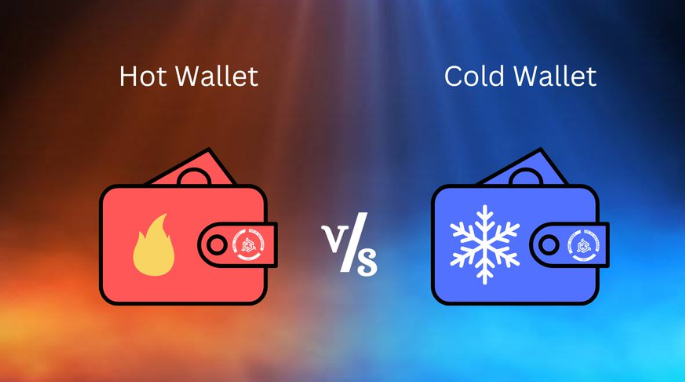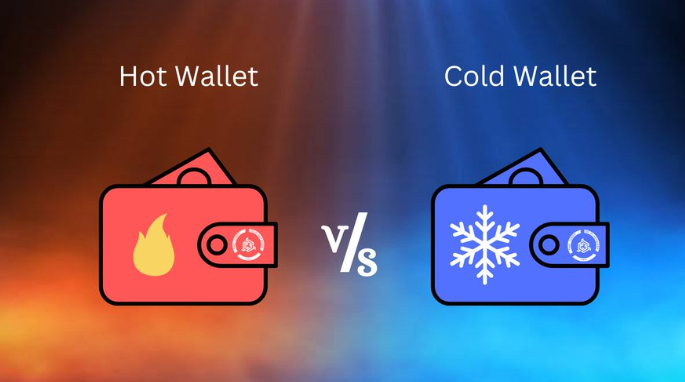Securing your cryptocurrency wallet is paramount in the digital age. With the increasing prevalence of cyber threats, understanding and implementing robust security measures is essential to protect your valuable assets.
Understanding the Basics

Before we get into the specifics, it’s crucial to understand that securing your crypto wallet is about protecting your private keys. These keys are essentially the passwords that allow you to access and control your cryptocurrency. If someone gets their hands on your private keys, they have complete control of your funds.
Here’s a concise overview of key strategies:
- Prioritize Cold Storage:
- For long-term holdings, utilize hardware wallets to keep your private keys offline, significantly reducing vulnerability to online attacks.
- Strengthen Digital Defenses:
- Employ strong, unique passwords and enable two-factor authentication (2FA) on all crypto-related accounts.
- Regularly update software and be vigilant against phishing attempts.
- Safeguard Private Keys:
- Treat your private keys and seed phrases as highly confidential information. Store them offline in secure, multiple locations.
- Practice Vigilance:
- Regularly monitor your wallet activity for suspicious transactions.
- Exercise caution when interacting with online platforms and avoid clicking on suspicious links.
- Stay Informed:
- Keep up to date on the newest security threats, and best practices.
Types of Wallets and Their Security Implications
- Hot Wallets (Online Wallets):
- These are connected to the internet, making them convenient but also more vulnerable.
- Examples: Exchange wallets, web wallets, mobile wallets.
- Security considerations:
- Strong passwords and 2FA are essential.
- Be wary of phishing attacks and malicious software.
- Keep software updated.
- Do not keep large amounts of crypto in hot wallets.
- Cold Wallets (Offline Wallets):
- These are not connected to the internet, providing a much higher level of security.
- Examples: Hardware wallets, paper wallets.
- Security considerations:
- Protect your physical device or paper backup from damage or theft.
- Store backup seed phrases in secure, separate locations.
- Hardware wallets are generally considered the most secure.
Detailed Security Tips and Best Practices
-
Choose a Reputable Wallet:
- Research and select wallets from well-established providers with a strong security track record.
- Read reviews and seek recommendations from trusted sources in the crypto community.
- Ensure the wallet supports the cryptocurrencies you intend to hold.
-
Generate and Secure Your Seed Phrase/Private Keys:
- When setting up a new wallet, you’ll receive a seed phrase (recovery phrase) or private keys.
- Crucially, write this down on paper and store it offline.
- Never store your seed phrase or private keys digitally (e.g., in a text file, email, or cloud storage).
- Consider using a metal backup for long-term durability.
- Store backups in multiple, secure locations, separate from each other.
- Never share your seed phrase or private keys with anyone.
-
Implement Strong Passwords and Two-Factor Authentication (2FA):
- Use a unique, complex password for each of your crypto accounts.
- Enable 2FA whenever possible, preferably using an authenticator app (e.g., Google Authenticator, Authy) rather than SMS.
- Avoid reusing passwords.
-
Keep Software Updated:
- Regularly update your wallet software, operating system, and antivirus software.
- Updates often include security patches that address known vulnerabilities.
-
Be Cautious of Phishing and Scams:
- Be wary of suspicious emails, messages, and websites that request your private keys or login credentials.
- Double-check URLs and verify the authenticity of any communication you receive.
- Never click on links from unknown sources.
- Be aware of social engeneering attacks.
-
Use a Secure Network:
- Avoid accessing your crypto wallets or conducting transactions on public Wi-Fi networks.
- Use a virtual private network (VPN) to encrypt your internet traffic.
- Home networks should be secured with strong passwords.
-
Regularly Monitor Your Wallet Activity:
- Check your transaction history regularly for any unauthorized activity.
- Set up transaction alerts to receive notifications of any movements in your wallet.
-
Consider a Hardware Wallet for Long-Term Storage:
- If you plan to hold a significant amount of cryptocurrency, invest in a hardware wallet.
- Hardware wallets provide the highest level of security by storing your private keys offline.
-
Practice Good Digital Hygiene:
- Avoid downloading software or files from untrusted sources.
- Use a reputable antivirus and anti-malware program.
- Be cautious of browser extensions and plugins.
-
Educate Yourself:
- Stay informed about the latest security threats and best practices in the cryptocurrency space.
- Follow reputable security experts and resources.
In conclusion, securing your cryptocurrency wallet is an ongoing process that demands vigilance and proactive measures. By understanding the inherent risks and implementing the best practices outlined, you can significantly mitigate the potential for loss. Prioritizing cold storage for long-term holdings, strengthening digital defenses with robust passwords and 2FA, safeguarding private keys with meticulous care, maintaining constant vigilance against phishing and scams, and staying informed about evolving security threats are all crucial components of a comprehensive security strategy.
Ultimately, the responsibility for protecting your digital assets rests with you. By adopting a security-first mindset and consistently applying these principles, you can navigate the cryptocurrency landscape with greater confidence and peace of mind.
Ready to start your cryptocurrency journey?
If you’re interested in exploring the world of crypto trading, here are some trusted platforms where you can create an account:
Binance: A global leader in cryptocurrency trading. -> Join Binance
Bybit: A user-friendly platform for both beginners and advanced traders. -> Join Bybit
BingX: Perfect for those looking to diversify their crypto investments. -> Join BingX
These platforms offer innovative features and a secure environment for trading and learning about cryptocurrencies. Join today and start exploring the opportunities in this exciting space!
Disclaimer: Always do your own research (DYOR) and ensure you understand the risks before making any financial decisions.
Contact for work: datnk710@gmail.com




